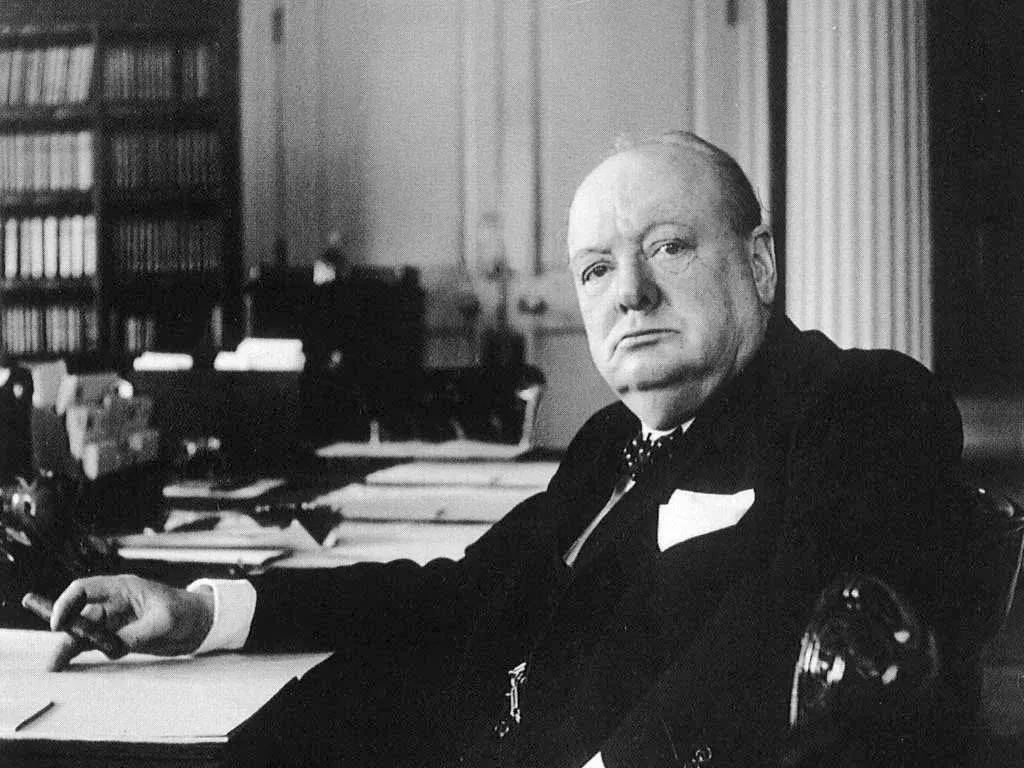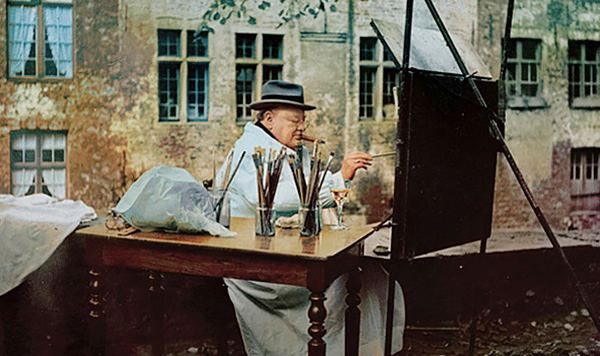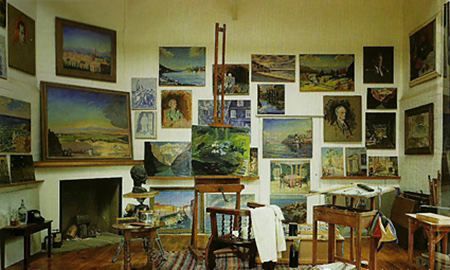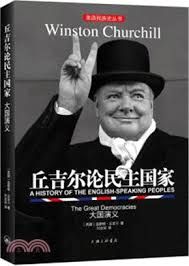
中国山東人,伯克利加州大學數學博士,哈佛大學政治經濟學博士。1989年從美國回国参加天安门民主運動。1990-2002年任「21世紀中國基金會」主席,期间推出《中华联邦宪法(草案)》,2002年4月秘密回國支援工運被捕,後以危害国家安全罪判刑五年,2007年釋放後流亡海外,同年末,在美國創立民主運動NPO「公民力量」。2010年代表刘晓波出席诺贝尔和平奖颁奖仪式。是多项国际人权奖的获得者。
Democracy is Endless - Churchill and Attlee

In 1919, just after the end of the First World War, Clemenceau, a famous French politician who made great contributions to France during the formulation of the Treaty of Versailles, was defeated in the general election, and Churchill, who had just emerged in the British political arena, quoted The famous saying of the ancient Greek historian Plutarch lamented: "Ingratitude towards great men is the mark of a strong people."
Churchill was perceptive, lighthearted and humorous when he said this. However, 26 years later, when history let him taste this famous saying, the taste was unusually bitter.
After Germany surrendered in 1945, Churchill lost a general election that required the abolition of the wartime cabinet and was unable to be re-elected as prime minister. Someone comforted him "This is a blessing in disguise", he retorted: "This 'disaster' pretends to be too similar?!" -- Revealing resentment but never losing humor. His shock and resentment are understandable as he has just led Britain to victory in the most horrific war in history. Most Britons are grateful to him, but think it is more appropriate for the Labour Party, led by Attlee, to lead Britain's post-war reconstruction.
At that time, Churchill's Conservative Party had been in power for 10 consecutive years, especially during the 5 years Churchill was Prime Minister, he had experienced an arduous struggle, and both he and the Conservative Party were exhausted. In fact, the next six years in the opposition have been a blessing in many ways for him. He wrote a masterpiece on the history of World War II, for which he won the Nobel Prize for Literature. He rests, paints, lays bricks in the garden, enjoys and enriches himself. He avoided direct responsibility for the postwar decisions that led to shortages, rationing, blackouts, and the near collapse of the British Empire he loved.


During the 1945 election, Churchill gained notoriety with his sensational warning that Attlee's socialism would have to resort to "Gestapo"-style means to impose its will on the British. Attlee was an outstanding World War I veteran who had been Churchill's loyal deputy prime minister during World War II. Churchill admired Attley very much, and Attley also admired Churchill and assisted him faithfully. In the race for the general election, it was absurd to suggest that Attlee would do anything to counter the kidnapping, torture and murder of Hitler's secret police, and Churchill knew it well. But almost every politician, including the great ones, exaggerates and distorts the truth at some point. But Churchill, a tireless student of British history and a defender of British constitutionalism, put aside his inappropriate remarks about the Gestapo, and he never feared the demise of British democracy. The defeat was frustrating for him personally, but it did not diminish his confidence in Britain as a free state ruled by law rather than man. He knew very well that the country he loved had just suffered a disaster far worse than the short-lived democratic socialist rule—if democratic socialism was a disaster, Britain would get through it and prosper again.
Attlee was a true democratic socialist, commonly known as a leftist, who believed in and implemented industrial nationalization and massive social welfare. At the same time, he firmly defended British democracy and constitutionalism, and he never had the ambition to be a dictator. His national economic policies were popular at the time, although they ultimately hampered Britain's economic development. Postwar Germany and Japan made rapid economic progress by resorting more to free-market policies. Later the Conservatives returned to power, including when Churchill became prime minister, and some but not all of Attlee's policies were repealed. Thirty years later, although Mrs Thatcher was more aggressive in abolishing nationalisation, she also did not take issue with socialised medicine in the UK.
Churchill returned to power in 1951 and served as Prime Minister for another four years. Twelve years later, Labour is back in power under Wilson. Conservatives win again after six years, etc. There is never a final defeat, and never a victory once and for all. Democracy is endless, and every policy is likely to attract opposition and future revisions. Almost every powerful politician and political movement has ultimately either been defeated or has exhausted itself and been replaced.
We as beneficiaries of Anglo-American democracy today are more fortunate than most to live in a centuries-old tradition of constitutional democracy.
The strengths and weaknesses of democracy are consistent with the strengths and weaknesses of its participants—especially key leaders. Elections are an essential part of democracy, and they are often painful and controversial, but the results must always be respected and governments and voters move on. Politicians come and go, iron-clad White Houses, running presidents, but the laws endure, and voters, despite their often rhetoric, embrace the democratic process. American democracy has withstood invasions, civil wars, depressions, and internal unrest. And in Britain, even with the fall of Nazi bombs and the threat of a German invasion, democracy remained unbroken. Churchill once said in the Canadian Parliament: "We are not afraid to cross centuries, cross oceans, cross mountains, and cross grasslands, because we are very strong inside." We are fortunate to see that democracy and respect for the rule of law, including respect for election results, have been rooted in the United Kingdom and the United States. in the DNA of democratic history. As immigrants in pursuit of democracy and freedom, we are naturally part of a legacy that we have no moral stance or political power to overthrow.
Central to democratic stability is the acceptance of electoral defeat, even in the face of opponents who may be feared and despised. Name-calling, frame-ups, or conspiracy theories should not be used to respond when an election is lost, as these can seriously undermine confidence in democracy. If the law works, it will limit the worst instincts of politicians. There will always be another election, one, and another. Election failure is painful, but when we claim to support democracy, we actually acquiesce: the transition of power is inevitable and necessary, any political party or individual in power for too long is not good for the country, and election failure is also healthy for the losers , which prompted them to reform and forge ahead.
In 1945, Churchill sadly and resignedly accepted the fact that he was defeated by his friend, colleague and rival, the democratic socialist Attlee. Subsequently, as an opposition party, he was Attlee's fiercest critic. He denounced him in the council, and crossed with him in the temple. For decades, they got along amicably, and for decades, they competed fiercely. They have both achieved victories over the other, and when they failed, they have both admitted to accept the defeat. Sometimes they like each other and cherish each other, and sometimes they despise each other. An old and frail Attlee attended Churchill's funeral in a wheelchair. If Attlee died first, Churchill would certainly have attended his funeral. They and the people of their country know that democracy is more important than any one person or any election. They know that losing one election is often as important as winning the next.

December 7, 2020 in Washington
Like my work?
Don't forget to support or like, so I know you are with me..
Comment…